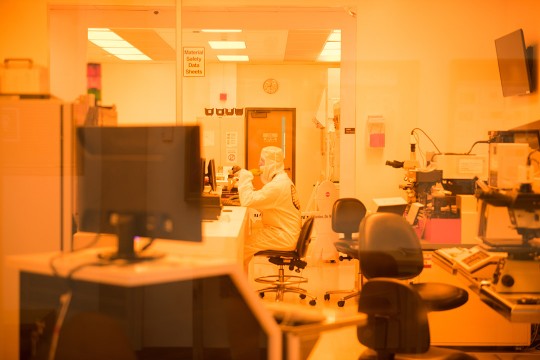
Karl Hirschman
Associate Department Head, Microelectronic Engineering
Karl Hirschman
Associate Department Head, Microelectronic Engineering
Education
BS, MS, Rochester Institute of Technology; Ph.D., University of Rochester
Bio
Dr. Karl D. Hirschman, professor in the department of electrical and microelectronic engineering at the Rochester Institute of Technology. He has also been the faculty director of the Semiconductor Nanofabrication Laboratory since 2001. Dr. Hirschman received his B.S. in Microelectronic Engineering and the M.S. in Electrical Engineering from Rochester Institute of Technology. He received the Ph.D. degree in Electrical Engineering from the University of Rochester. Dr. Hirschman has published over 50 technical papers in refereed journals and conference proceedings. He is an active member in the IEEE, MRS and SID. He has served as an officer of the Rochester IEEE Electron Device Society local chapter for the last fifteen years, and he coordinates the IEEE Annual EDS Activities in Western NY Conference. He teaches courses at RIT in process and device technology ranging from undergraduate freshman to graduate level. His current research activities are in silicon and metal-oxide thin-film electronics. For more about Dr. Hirschman see: http://people.rit.edu/kdhemc/
Select Scholarship
Currently Teaching
In the News
-
May 1, 2025

RIT's microchips program flourishing amid high domestic demand for engineers
WHAM-TV speaks to Karl Hirschman, professor in the Department of Electrical and Microelectronic Engineering, and microsystems engineering Ph.D. student Sami Znati about the opportunities available in the semiconductor field.
-
October 11, 2021

RIT receives $1 million grant to upgrade and expand its cleanroom facility
The Kate Gleason College of Engineering was awarded a $1 million Higher Education Capital Matching Grant (HECAP) from New York state. The award will be used to upgrade and expand the college’s cleanroom facility to accommodate the growth of research in biomedical technologies such as drug delivery and lab-on-chip devices.